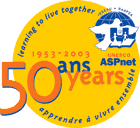Children of Iraq

A students work from Comprehensive School Kandel, March 2003
The current situation:
- Dilapidation of schools, public health department and water supply
- The children are so weak and ill that every kind of diarhoea is deadly for them
- Boys have to work as a seller on streets or in workshops to improve the family income
- Girls have to stay at home to take care of their little brothers and sisters so that their mothers are able to work
- In schools chairs, tables, books, exercise books and pencils are rare
- 13 percent of the children die before they reach the age of 5
- 25 percent of the children don’t go to primary school
- ¼ of the population don’t have access to clean water
- On a normal day of the children war is always a topic
- Since the second Gulf War in 1991 people and especially the children
have always been
enormously affected (results in the next point)
- High impoverishment. And: There is a lack of sufficient nutrition (every 4th
child doesn`t receive enough food to develop physically and intellectually in
a normal way)
- Almost half the population consists of children below the age of 18
- Without war the living conditions* in Iraq are very difficult
- Thousands or maybe millions of civil casualties, refugees, hungry children
and injured people would be the devastating results of a renewed war (war
would bring a human cathastrophe)
=> but international humanitarian aid is waiting
Living conditions before war:
- Often no access to clean water
- Not enough food and medicines
- Many children are orphans, because of the second Gulf War
- The children are less developed (13 and 14 year old children look like 8
to 10 year olds)
An example of an Iraqi boy:
An eight-year-old Iraqi boy receives chemotherapy and antibiotics against
cancer at Baghdad's Al-Mansour Paediatric Teaching Hospital, but his prospects
are not good, due in part to the hospital's limited resources.
Humanitarian Aid for Children
=> the UN-programme “Oil for Food” (started after the second Gulf War) brought
the people alleviation:
- a one month rate:
2oo gr. tea, 25o gr. peas, 125 gr. beans,
125 gr. lenses, 1 kg dripping to cook, 2 kg sugar,
3 kg rice, 8 kg flour, 125 gr. powdered milk, 1oo gr. salt,
8 drops babymilk and 8oo gr baby porridge, 2 pieces soap,
5oo gr. washing powder
=> UNICEF staff in Iraq are working under extraordinarily difficult
circumstances to meet the needs of children
- since 1952 UNICEF has been working to improve the situation of children
and women in Iraq
- since 1983 UNICEF has had a permanent presence in the country
- since the first Gulf War UNICEF has focused on providing food, blankets
and other essential supplies (UNICEF concentrates especially on the needs of
children)
- UNICEF has also positioned thousands of tonnes of relief supplies in
Iraq (including high-protein biscuits, essential medicines, water purification
supplies and other life-saving emergency items)
But these programmes have unfortunately been stopped during war!!!
Iraqi children in school after they got help from one of the aid programmes
The psychological consequences for
Iraq`s children
The experts for children psychology and children’s rights concluded that
»the Iraqi children are today more essential victim cash, than it yet
before the Gulf War 1991 were«. Both children psychologists of the team, the
Norwegian physicians Dr. Atle Dyregrov and Dr. Magne Raundalen assessed that
the children suffer under an enormous stress in view of the omnipresent threat
of war. They feel tired, exhausted and sad. It’s difficult for the parents to
calm their children sufficiently because they live in war anxiety themselves
and with the daily worry to have to nourish the family. In conversations with
the children it became obvious that the parents hoped to be sure for peace
and a good future.
Link list
More about the UN-programme “Oil for Food”
Report about the human situation in Iraq
(in German language only)

(c) Agenda 21 NOW! 1999-2016.We are not responsible for the content of linked pages.
E-mail to webmaster: webmaster@agenda21now.org
|









